Anthony Joshua vs Wladimir Klitschko: Who are the four men to beat the Ukrainian and what happened next?
Klitschko has had 68 professional fights and boxed for a total of 358 rounds and yet only four men have ever managed to beat him. But who are those men, and what happened next?
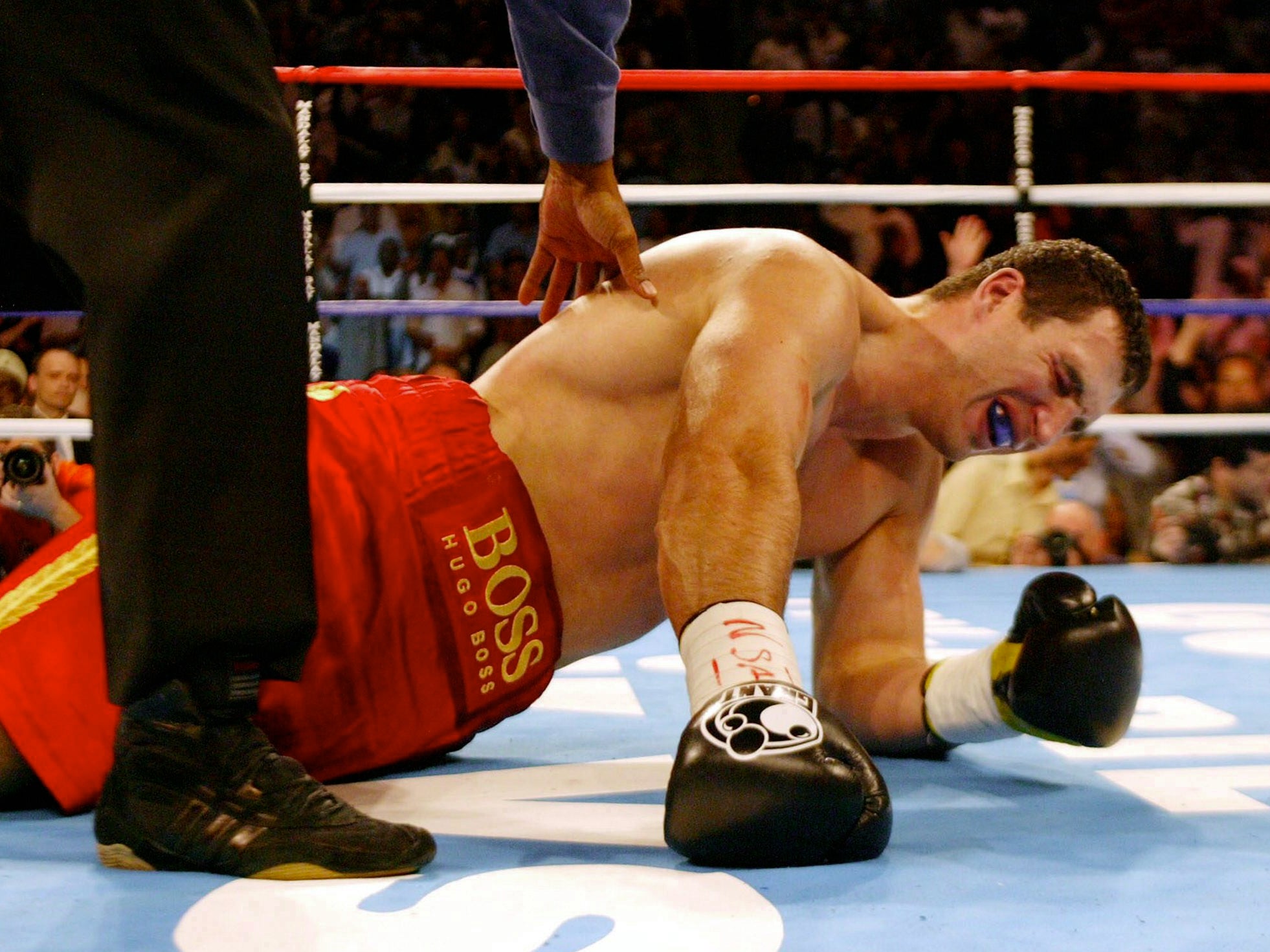
Tyson Fury’s shock points victory over Wladimir Klitschko in November 2015 was just the fourth professional fight the Ukrainian had ever lost, in over two decades in the sport.
His defeat ended a 23-fight winning streak and every second of the contest will have been poured over by current IBF heavyweight champion Anthony Joshua, who will take on Klitschko at Wembley Stadium on April 29.
But while Klitschko’s defeat to Fury made headlines around the world, and while his fight against Joshua promises to be one of the biggest spectacles in the history of boxing, his other three defeats are less well known.
Here Independent Sport recounts the four nights on which Klitschko tasted defeat, and reveals what happened next in the men talented enough to beat him.
Ross Puritty (December 1998)
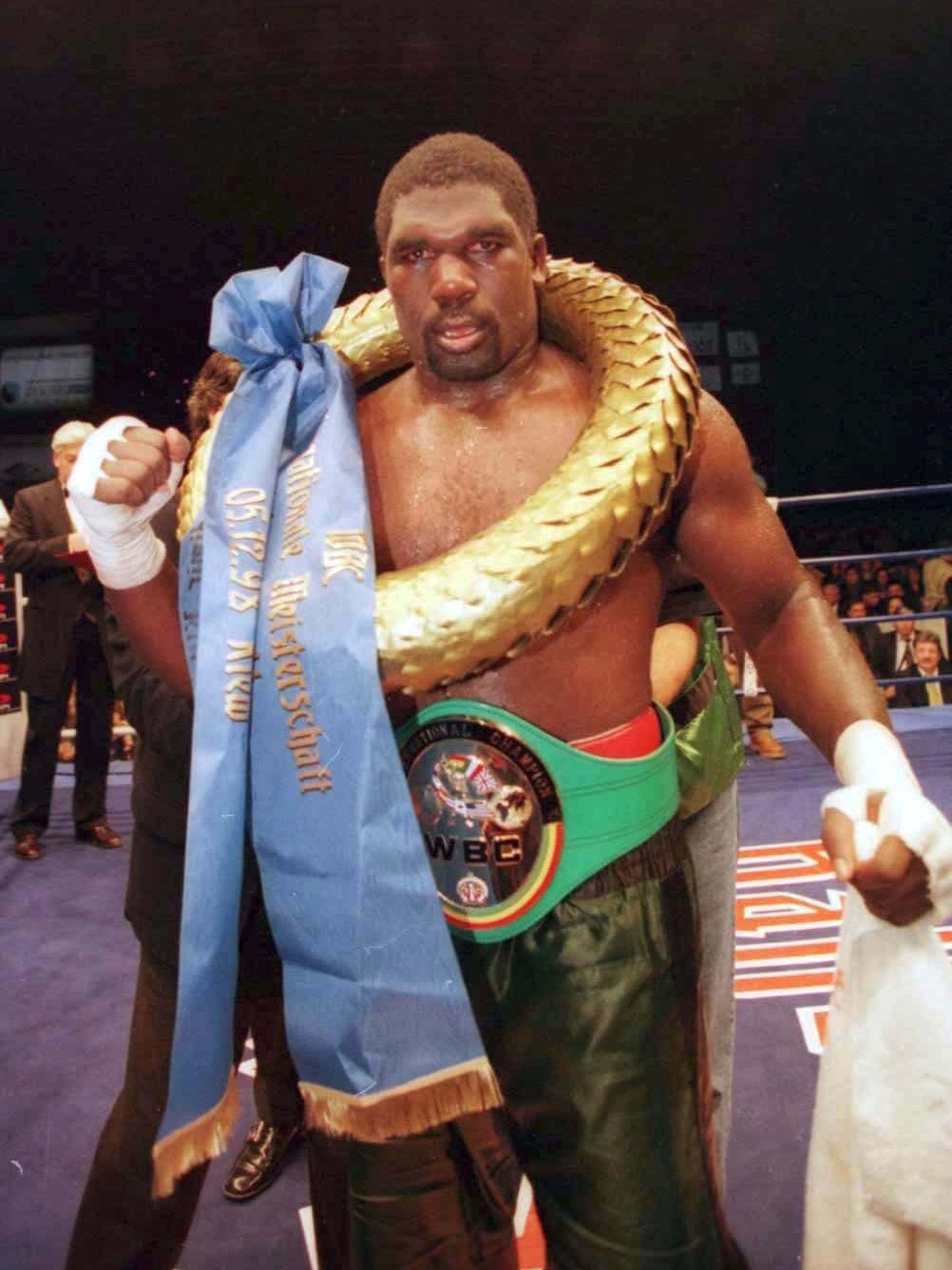
How did he win?
Klitschko’s first ever professional fight in his Ukrainian homeland did not go according to plan. The American Ross Puritty was considered little more than a trial horse in the boxing community and had lost three of his previous four fights heading into the bout. But taking the fight on just eight days’ notice, Puritty stopped Klitschko in the eleventh round for the greatest win of his career.
“Yeah, the notice was very short,” Puritty recounted in an interview in 2014. “The only preparation that I had, basically, was that I knew it’s gonna' be a tough fight and I kept trying to be the last one on the ring.”
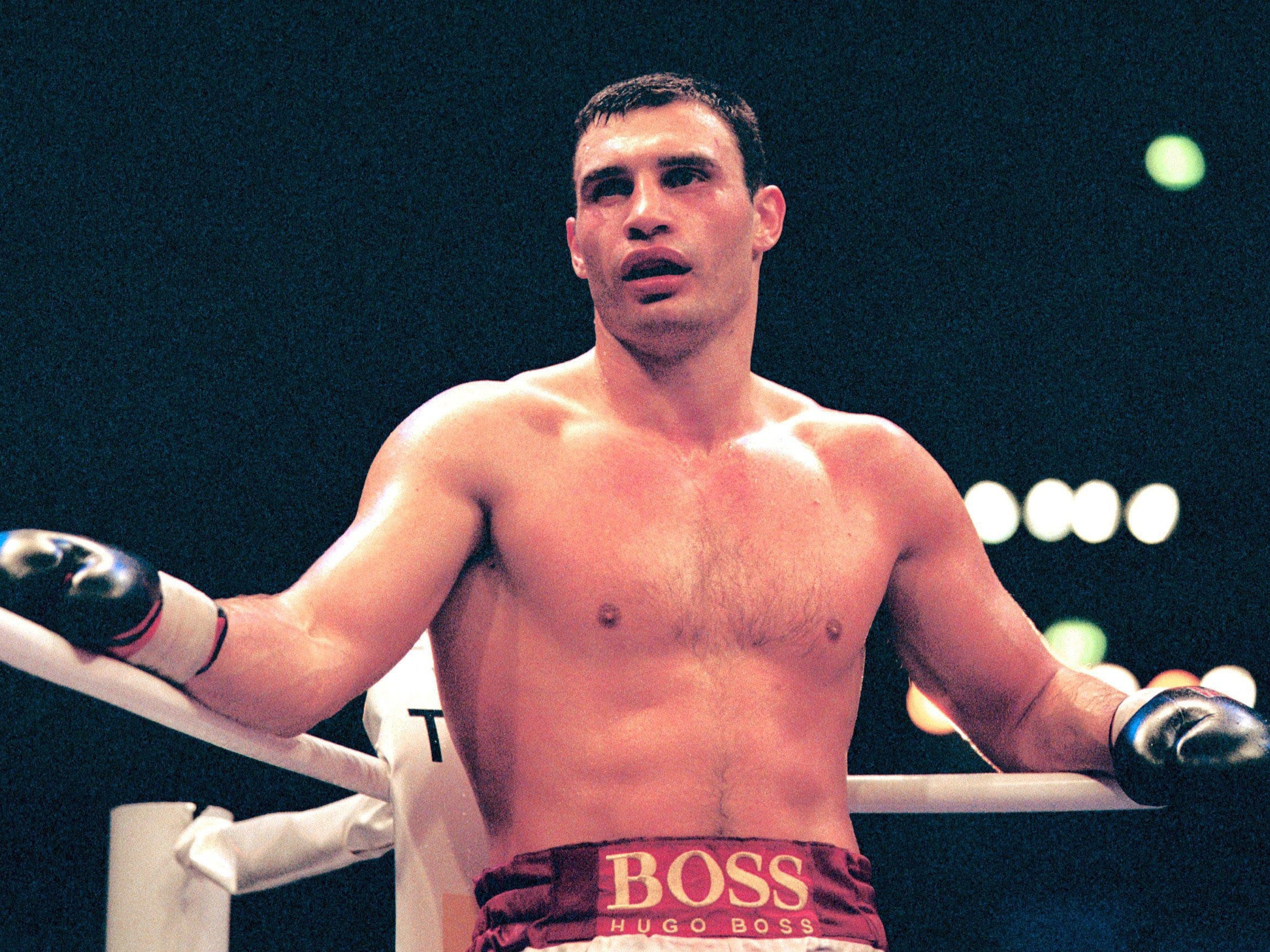
What happened next?
Puritty claimed that Klitschko was asked on two occasions about the possibility of a rematch, only to decline both times. In 2001 Puritty took on Wladimir’s brother, Vitali, with the fight stopped in the 11th round after the American sustained a large cut to the face.
The journeyman hung up his gloves in 2007 after defeating Carl Gathright in Canada. He retired with a professional record of 31-20-3.
Corrie Sanders (March 2003)
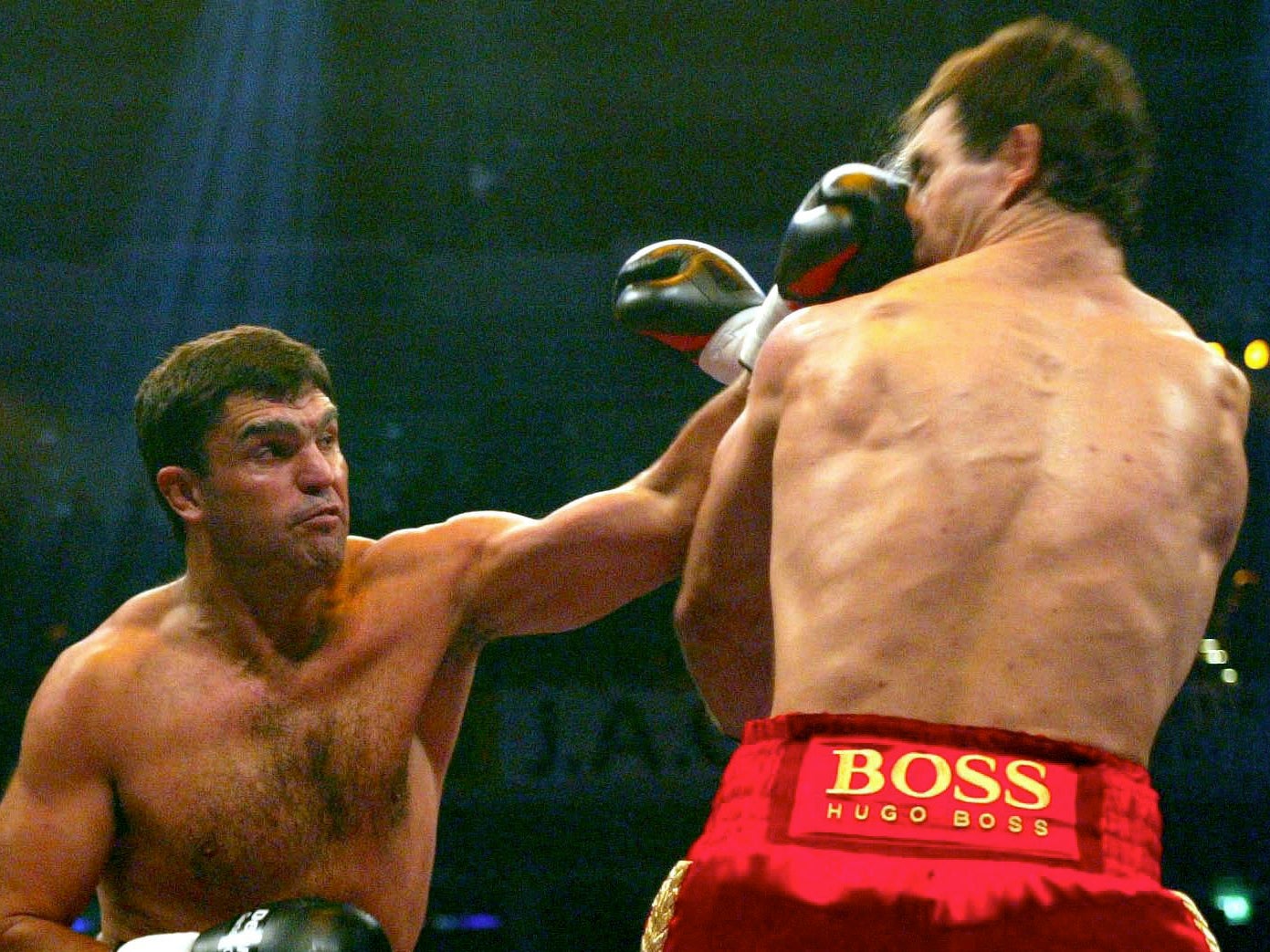
How did he win?
At 37 and having recently been knocked out by the American Hasim Rahman, Sanders was so unfancied for his fight against Klitschko that some bookmakers were offering odds of 50-1 for him to win via knockout. But a vicious left-cross counter floored Klitschko in the very first round.
Enjoy 185+ fights a year on DAZN, the Global Home of Boxing
Never miss a fight from top promoters. Watch on your devices anywhere, anytime.
ADVERTISEMENT. If you sign up to this service we will earn commission. This revenue helps to fund journalism across The Independent.
Enjoy 185+ fights a year on DAZN, the Global Home of Boxing
Never miss a fight from top promoters. Watch on your devices anywhere, anytime.
ADVERTISEMENT. If you sign up to this service we will earn commission. This revenue helps to fund journalism across The Independent.
Klitschko battled on, only to hit the canvas twice more in the opening round. In the second, the referee stopped the contest, and Sanders was the new WBO heavyweight champion. “[Sanders] was what people in boxing call a ‘bum,’” Klitschko recounted several years afterwards. “I was tired, I’d been busy. I went into the ring thinking I’ll knock this guy out in one round and go home.”
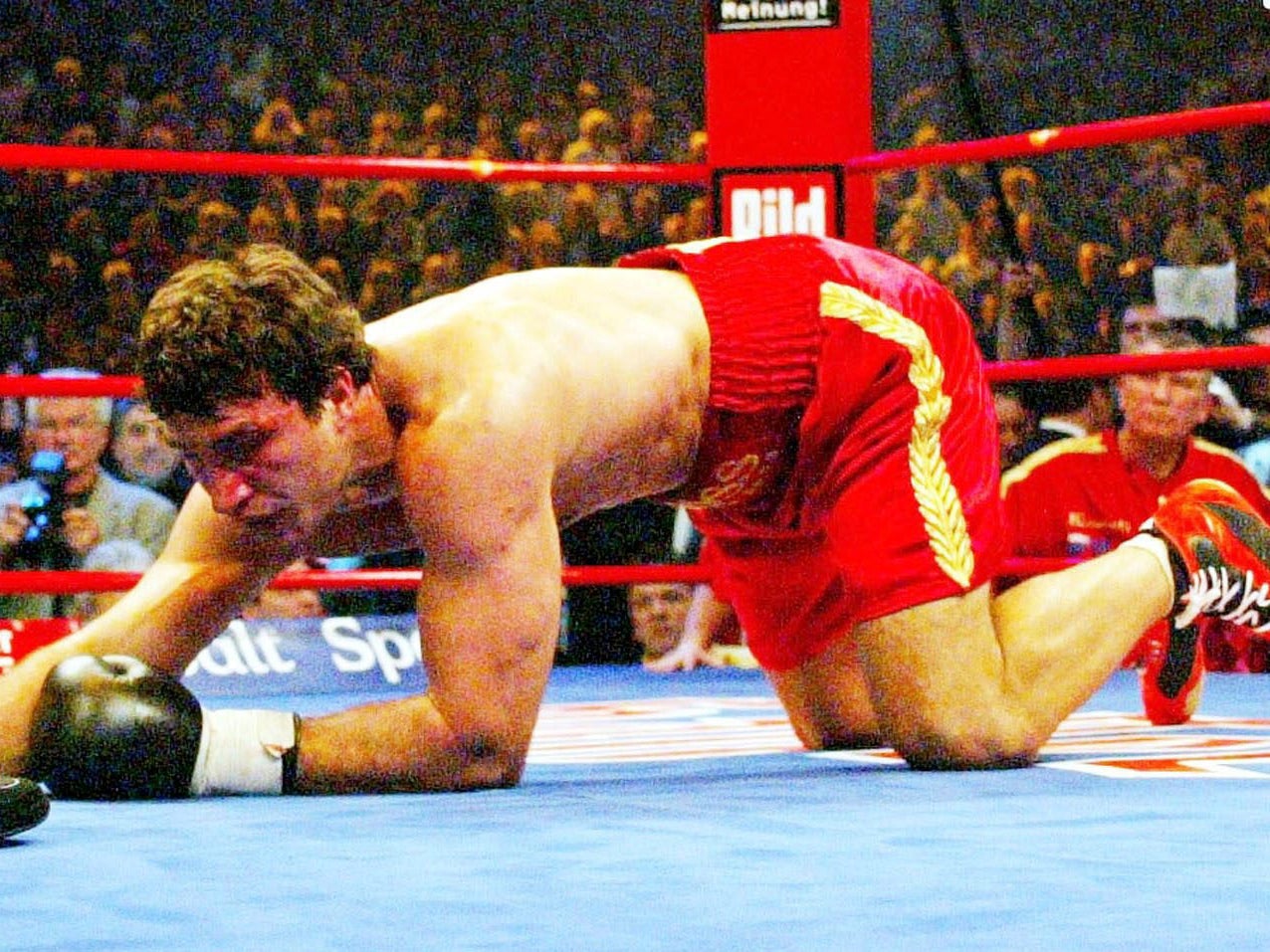
What happened next?
Sanders lost his very next fight – against Vitali. He fought four more times before retiring with a respectable record of 42-4.
Four years later, in 2012, the South African was killed in tragic circumstances: shot by robbers during a family celebration at a restaurant in the rural town of Brits. His widow said Sanders died a hero, using his body to protect his daughter from oncoming bullets.
Lamon Brewster (April 2004)
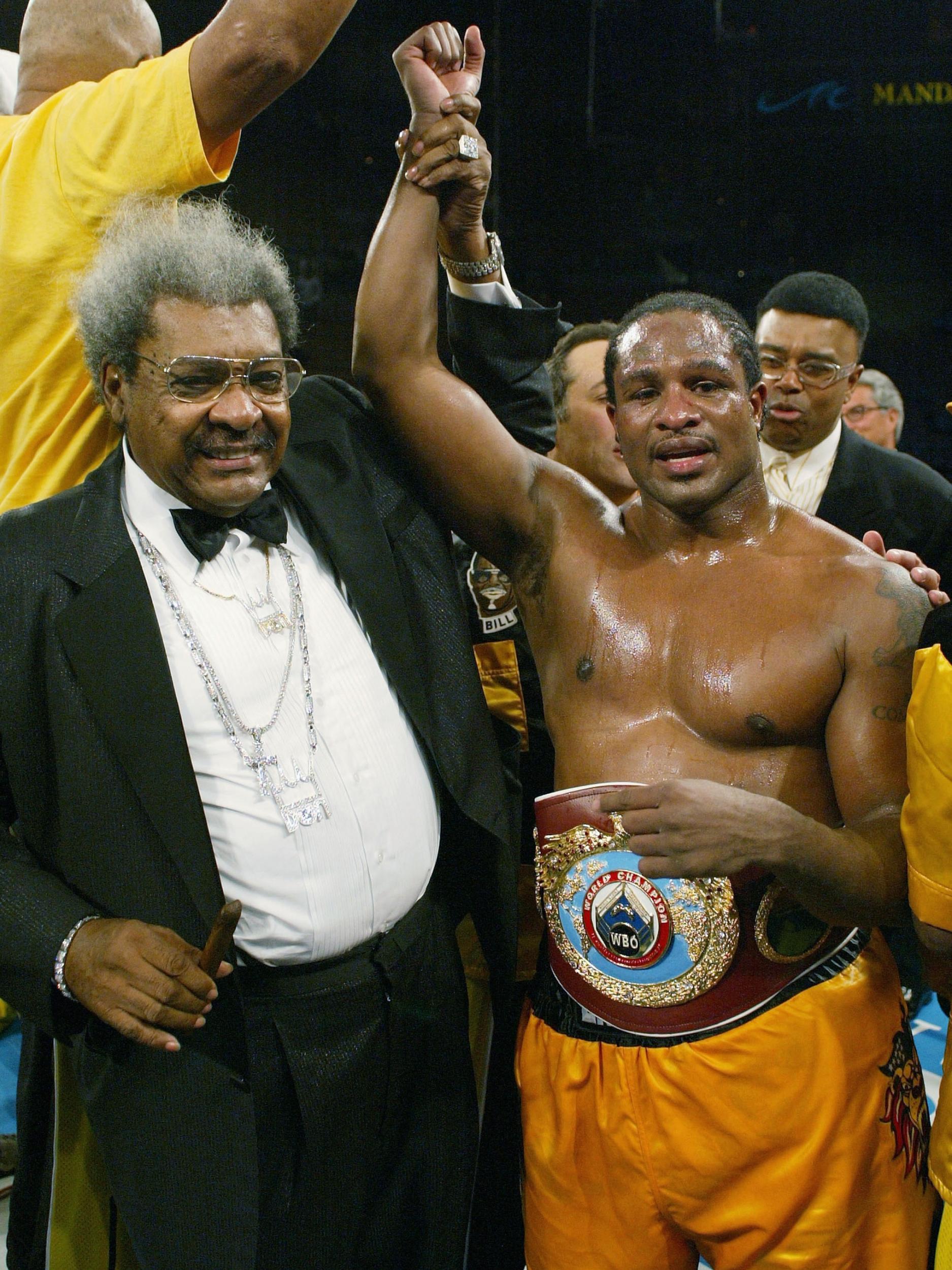
How did he win?
Unlike in his first two defeats, Klitschko dominated the opening exchanges of his world title fight with the American Lamon Brewster. He sent his rival crashing to the canvas in the fourth round and looked to be cruising his way to the title.
And then, seemingly out of nowhere, Klitschko ran out of gas. A brutal left hook left the Ukrainian reeling on the ropes, and just before the bell rang to signal the end of the fifth, Klitschko was hit with a flurry of punches that knocked him to the deck. Unable to get back to his feet, the referee stopped the fight.
Klitschko claimed foul play had cost him the title but an official investigation found no evidence of any wrongdoing.
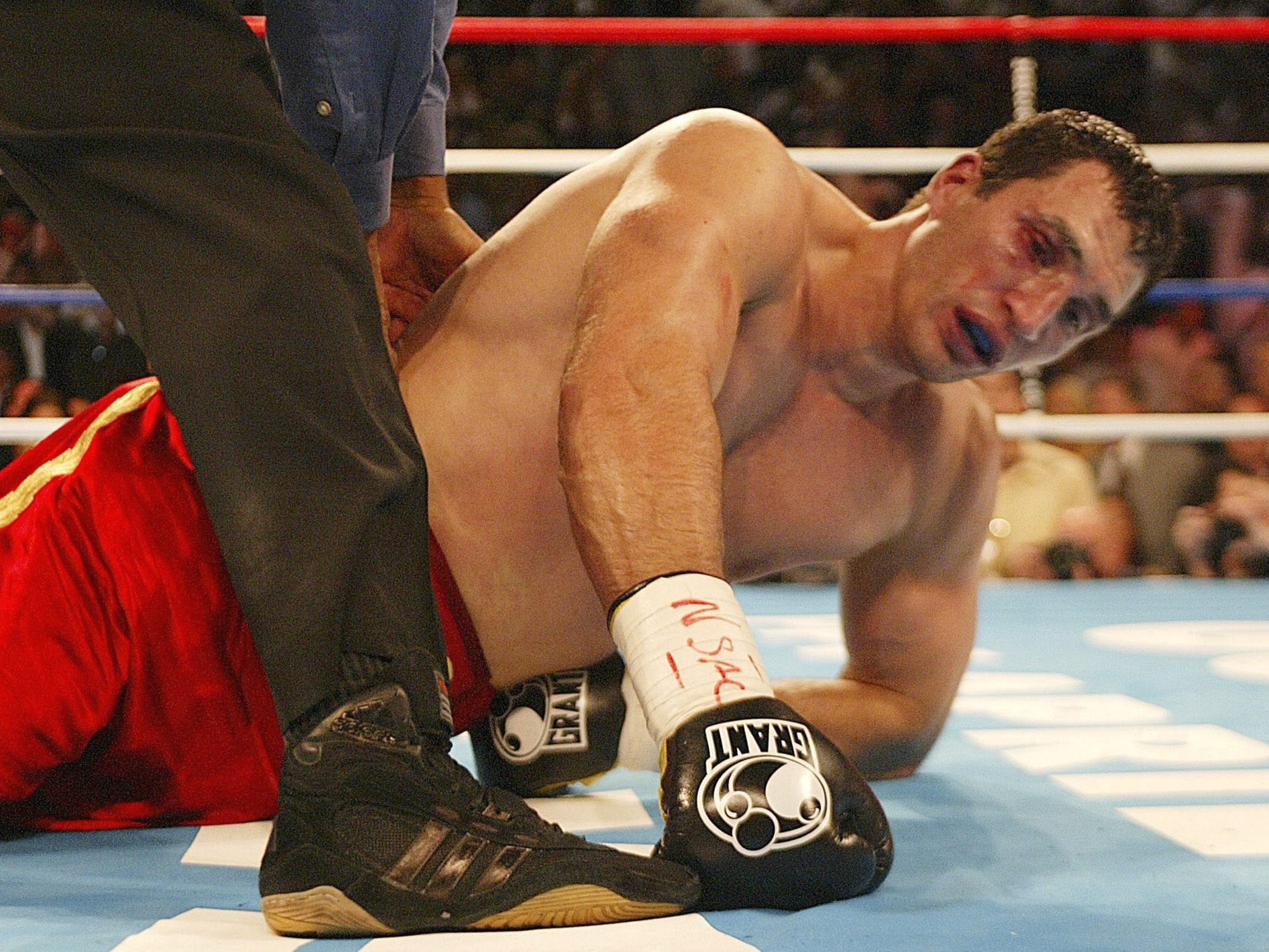
What happened next?
Unlike with his previous defeats, Klitschko agreed to a rematch with Brewster. With the IBF and IBO heavyweight titles at stake, Brewster’s trainer Buddy McGirt stopped the fight just after the sixth round. It was Brewster’s fourth career defeat.
The American fought four more times, winning twice before ending his career with two consecutive defeats, to retire with a career record of 35-6. In 2011 he founded “Fighting Connection Consulting”, to provide up and coming boxers with career advice.
Tyson Fury (November 2015)

How did he win?
After going 22 fights undefeated in a winning streak spanning over a decade, the enigmatic Tyson Fury stunned Klitschko at the Esprit Arena in Düsseldorf, to steal the WBA Super, WBO and IBF titles.
Fury’s strategy of repeatedly switching between stances and circling away from Klitschko’s powerful right glove seemed to dumbfound the champion, who struggled to land many meaningful blows. Fury landed two brutal left-hooks in the closing stages and won the fight with a unanimous 115-112, 115-112, 116-111 score-line.
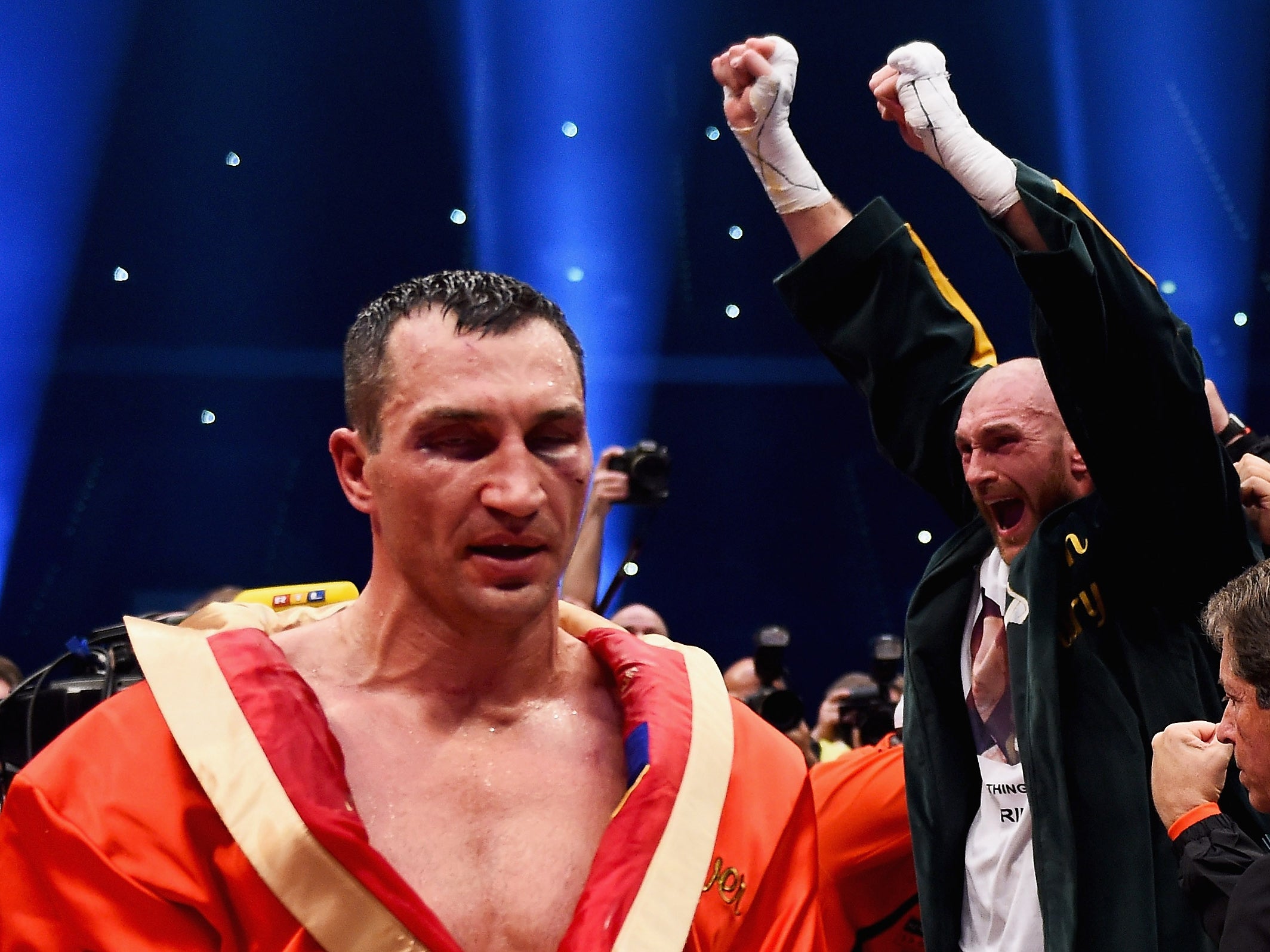
What happened next?
Where to start? Fury held the IBF title for just 10 days, before being stripped of the belt for failing to face the IBF's mandatory challenger Vyacheslav Glazkov. After a number of controversies – with Fury’s BBC Sport Personality of the Year award nomination proving controversial after he likened homosexuality to paedophilia in the media – his rematch with Klitschko was finally scheduled, for 9 July 2016.
However the rematch had to be cancelled because of Fury’s problems with depression as well as a positive drugs test for cocaine. Fury subsequently relinquished his titles and in October his boxing license was suspended by the British Boxing Board of Control. He has targeted a 2017 return, although is still waiting for the BBBoC to end his suspension.
Join our commenting forum
Join thought-provoking conversations, follow other Independent readers and see their replies
Comments
Bookmark popover
Removed from bookmarks